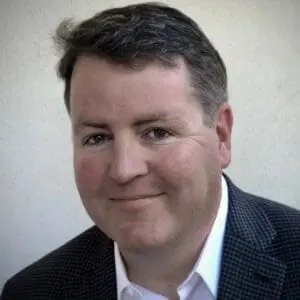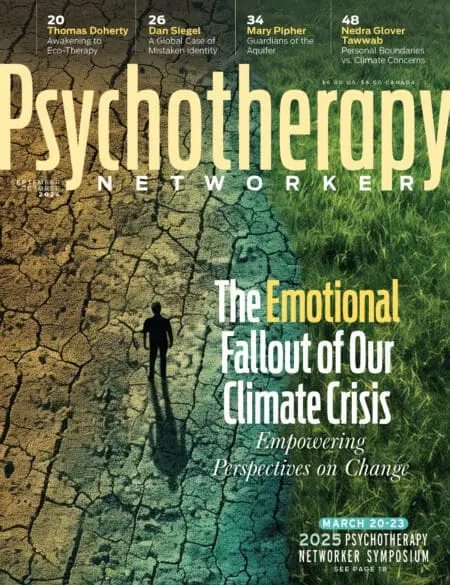Emmy winner Stephanie Foo seemingly had it all. A young producer living the big city life of her dreams, she worked at public radio juggernauts like This American Life and Snap Judgment, and had become a popular freelancer for hip podcasts like New York Magazine’s The Cut and the hugely popular 99% Invisible. Her relationship, despite all the hours she was putting in at her jobs, was thriving. The only problem was the unnerving and suddenly unceasing panic attacks that she’d begun experiencing each morning in her office, a place where she’d always been able to keep her horrific childhood memories at bay.
When she sought help from a therapist, she received the uncommon diagnosis of complex post-traumatic stress disorder, or C-PSTD. Not yet listed in the DSM, C-PSTD has been added to the World Health Organization’s International Classification of Diseases as a designation given to people who’ve endured multiple traumatic experiences, often over a long span of time. It can be challenging for practitioners to differentiate from traditional PTSD and, given its complexity, challenging for clients to overcome.
Foo’s level of success and her upbringing in a supposed “model-minority” Asian-American family had further obscured and extended her suffering, when in truth, she’d endured abandonment and severe abuse as a child.
In her recent book, What My Bones Know: A Memoir of Healing from Complex Trauma, Foo details these experiences, along with the many obstacles to proper treatment for C-PTSD, including shame, stigma, and therapists themselves, who are often uninformed about the disorder. She also highlights the multiple strengths she’s developed as a survivor and celebrates the powerful ways she and other people with C-PTSD can adapt and succeed, despite all that they’ve endured.
– – – –
Ryan Howes: Your book addresses the trauma you experienced in your childhood. In what ways do you feel it was buried?
Stephanie Foo: I was physically, verbally, and emotionally abused throughout my childhood, and then abandoned by both of my parents by the time I was 16. To a certain degree, I’ve always understood how that affected me, but I believed my ability to function so well professionally meant that I’d healed from it—and everybody else believed it, too. As a workaholic, I’d buried it all beneath success and acclaim.
But around 2017 and 2018, I got so burnt out and mentally unhealthy that I couldn’t work anymore. I had a hard time concentrating. That’s when I was diagnosed with C-PTSD. In researching the symptoms and what it does to your brain, I finally understood that the trauma was ongoing, and the healing process was something I’d need to continue working on.
RH: What do you wish the people around you could’ve noticed earlier?
Foo: I belonged to a community of students who were immigrants or whose parents were immigrants, and many of us were burying intergenerational trauma and mental illness through academic success. You could see children crying inconsolably when they got a B-plus instead of an A. I had friends who came to school covered in bruises. I talked openly about the wild parties I’d have at my house, because my parents were never there. These were real warning signs that teachers should’ve flagged but didn’t, because it all got obscured by the “model minority” myth. Even child-protective services ignored the abuse, seeing a nice, successful Asian family in a good house, rather than what was really going on.
What was really going on was that we were a community of refugees, people who’d fled the Korean War, the Chinese Cultural Revolution, the Vietnam War. Did they really think that everybody was just totally fine? We may not have been going to therapy, but that doesn’t mean that everything was A-okay under the surface.
RH: Is part of the “model minority” myth dismissing people’s pain with statement like, “Well, that’s just normal in their culture”?
Foo: Absolutely. It happens all the time. Dismissing real needs, real problems, real trauma and abuse as a cultural element—that’s problematic. Also, it’s important to acknowledge that culturally sensitive therapy is critical. Maybe you’re working with a Cambodian refugee and you immediately say, “Why don’t you tell me all of your most vulnerable memories and stories?” It’s just not going to happen. They’ll have a problem trusting you because the Khmer Rouge basically built a culture of people who couldn’t trust their neighbors.
Figuring out alternative forms of therapy—culturally sensitive therapy for these populations—is critical to their being able to heal. People say, “Well, these cultures don’t value mental health, so they’re impossible to treat.” That’s just not true. Plenty of projects offer these populations avenues for healing, and they work.
Daryn Reicherter’s work in San Jose is one. He inherited a program with about 200 Cambodian refugees, and he found all of them were on antipsychotics. He reevaluated them with Cambodian-refugee therapists and found that they were experiencing sleep paralysis because of PTSD. In their culture, they associate that with ghosts, but when they said that to American white therapists, they were all put on antipsychotics. These people were not psychotic: they had C-PTSD.
Reicherter assigned them therapists who mostly acted as social workers for the first two years, helping them get food stamps or accompanying them to doctor’s appointments or parent-teacher conferences before starting to ask them about their past trauma. These therapists encouraged them to go to temple more so they could build community and learn mindful practices that are part of their culture. In essence, the therapists took the time to build trust before asking them to open up.
RH: What’s been helpful in your own trauma treatment?
Foo: What wasn’t helpful was an immediate focus on pathology. When I was diagnosed, I was basically told I was a toxic person. I read a list of symptoms that were like, “You’re aggressive. You can’t maintain relationships. You can’t hold a job.” And it made me feel very broken. This condition comes with a tremendous amount of self-loathing and shame, so it doesn’t help to tell people they’re toxic; it exacerbates existing symptoms.
One thing that’s been helpful is reframing C-PTSD so it isn’t a death sentence or a disability. I’ve appreciated meeting other people who’ve healed in significant ways from it and are successful and happy. It was important to understand their symptoms didn’t need to be “fixed”: they can actually be assets in the right light. I also benefited from learning a healthier process of calming down and understanding where my responses to certain situations were coming from without needing to judge them or feel shame about them. I ask myself, “What’s the truth of what’s going on right now? Let me be curious about it, so I can feel activated if I need to be, or let me feel calm and safe if I’m truly safe.”
RH: You’ve talked about “trauma superpowers.” Have you found benefits from your trauma?
Foo: In many ways, I can attribute my entire career to my C-PTSD, because it was a coping mechanism. My diligence and hypervigilance are the result of my mother screaming at me if I misspelled something and beating me if I made a small mistake at six years old in a journal that she was forcing me to write. But am I not going to work and accomplish the things that bring me joy because I recognize it’s a trauma response? No. It’s more about changing the self-loathing voice and using my hypervigilance to create something meaningful. The voice doesn’t have to say, “You’re an idiot. How could you do this? You’re a failure.” Instead, it can say, “Let’s do this. This is something you feel passionate about. Let’s go.”
RH: Therapists have a lot to learn about C-PTSD, especially given that this diagnosis isn’t in the DSM.
Foo: I think most therapists have no idea how to treat it. But there’s a movement to get it into the DSM, and it’s recognized by the NHS, the VA, the World Health Organization. The longer the DSM goes without including it, the more embarrassing and delegitimizing it is, quite frankly.
RH: What do you think therapists need to know about C-PTSD?
Foo: They need to stop diagnosing people right away and then letting them walk out the door. In other words, don’t just tell them all the things wrong with them and then leave them believing that that’s their only truth.
I worked with one psychologist and neuroscientist who used the acronym BADASS instead of blunted and discordant affect sensitivity syndrome. It’s a powerful reframe for a young girl! It was like, “You have something that you’re suffering from, and that suffering is real. But you’re also a little bit of a badass. Our work is going to be about recognizing the power that you have with this, cultivating the ways that it may help you and give you comfort, and helping you in the ways that it doesn’t.”
Therapists need to present this C-PTSD as nuanced, something that has helped people survive, to get to where they are—and getting to where they are is something to be celebrated. The changes in the brain it brings are an evolutionary adaptation. It’s not that these people are broken and messed up: there’s more nuance to it. People with C-PTSD can be extremely empathetic, thrive in dangerous situations, and be extremely on the ball, not missing a deadline, just as an example. They can be resourceful and need help at the same time.
Recently, I spoke to a therapist in training who told me that the class on trauma was optional in her program. That’s absurd. Most of the people going to therapy have experienced some form of trauma. That you can become a therapist without getting specialized training in how to treat trauma is problematic.
RH: There’s a current debate about this. Some therapists would say all therapy training is trauma training, and others say standard training doesn’t address the complexities of trauma.
Foo: I think what’s important for therapists to do is keep up with the latest on what seems to be working because no single mode of therapy helps everyone. My therapist was wholly collaborative with me; he wasn’t trying to be the all-seeing Wizard of Oz, who’s going to fix you. Instead, he gave me control by letting me see behind the curtain and explaining exactly what was happening and what he was doing. Over the years, I’ve found rupture and repair therapy helpful. IFS was very helpful. EMDR was a little bit helpful. I think psychedelics can be helpful.
RH: What can friends or loved ones do for someone dealing with C-PTSD?
Foo: It’s helpful to recognize when someone is triggered. But when that happens, don’t say, “Oh, you’re triggered, so you don’t mean what you’re saying right now.” It’s better to try to comfort them in a physical way. Like whether it means saying, “Hey, why don’t you breathe with me for a second?” Or “Do you need a hug?” Or “Is there a physical stimulus that you can hold?”
In a relationship, it’s important to have a lot of conversations with your partner about what they need, when they need it, and how you can provide it. A lot of people with complex trauma have a hard time asking for things, so creating plans ahead of time for when they’re triggered is important. For me and my husband, we understand that this has to be a constant conversation. We’re constantly renegotiating, and we’re constantly growing.
PHOTO © BRYAN DERBALLA
Ryan Howes
Ryan Howes, Ph.D., ABPP is a Pasadena, California-based psychologist, musician, and author of the “Mental Health Journal for Men.” Learn more at ryanhowes.net.













